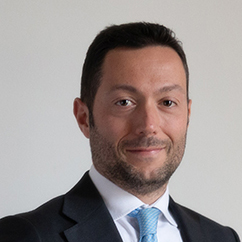La partner di Studio Avv. Laura Panciroli è stata intervistata dalla testata cinese Jiemian News (界面新闻, organo di informazione fondato nel 2014 dallo Shanghai United Media Group) circa la tragica morte di tre ragazzi cinesi a seguito di un incendio, probabilmente di natura dolosa, avvenuto a Milano in settembre.
L’intervista è stata resa possibile dall’iniziativa del senior partner avv. Francesco Brugnatelli, che sta portando lo Studio a coltivare relazioni privilegiate con le più diverse realtà culturali ed imprenditoriali cinesi.
Riportiamo il link al sito cinese (leggibile in mandarino)
https://m.jiemian.com/article/11757420.html
e in inglese il testo per esteso dell’intervista:
- Could you briefly introduce your name and position?
My name is Laura Panciroli, I am a criminal lawyer in Milan. I am a partner in the law firm of Ichino-Brugnatelli and Associates who traces its history back to the second half of the 19th century.
- Under normal circumstances, what is the basic investigation process of such a criminal case and how long does it take?
The investigations are coordinated by Milan’s Public Prosecutor and, in this case, they are assigned to the Fire Department and to the Police. The investigative activities are private; the Press receives the main news but not the details. We have read that a few days before the fire someone had reported an attempted extorsion of 20.000 euros and then later a businessman’s wife was threatened with a knife: therefore, we can assume that the police will hear these people as witnesses, they will acquire the images of the cameras nearby and the will ask for a technical consultancy on the causes of the fire. The investigations will normally last six months, but they can be prolonged.
- Police now suspect arson, and prosecutors are likely to pursue charges of slaughter (or murder?) and extortion. From a legal point of view, do these two charges fit the case? What kind of punishment do they correspond to?
From the information we have, we can assume that the hypotheses of offenses will be arson (article 423 of the criminal code, punished with imprisonment for 3 to 7 years), involuntary homicide (article 589 of the criminal code, punished with imprisonment for 6 months to 5 years, aggravated by the death of more than one person) or voluntary homicide (article 575 of the criminal code, punished with imprisonment for not less than 21 years) based on whether the arsonists were aware of the fact that there were people inside or not. The extorsion is punished with imprisonment for 5 to 10 years (article 629 of the criminal code).
- The three victims died in an exhibition hall that a company had converted into a warehouse, and the most important part is the room has no emergency exit. Is this legal to allow people live in this kind of place (a room without an emergency exit)? Should the person in charge of the business that allowed them to live here be held legally responsible (although he was not the direct arsonist), and how should he be held liable?
We have read that the place was used as an emporium, not habitable, and it isn’t clear who knew or allowed the three young people to stay there during the night.
- The three dead were Chinese citizens. Will their nationality have any impact on the handling of the case?
The victims’ citizenship in no way influences the investigations or its consequences.
- Relatives of the victims are likely to return home soon for visa reasons. How could they continue to receive legal support?
The victims’ families can appoint a defendant and they can indicate his firm as address for service, so that they can keep receiving the notifications of the judicial authorities, and they can be kept informed of the investigations and they can exercise their rights, including their right to damages, in the criminal trial.
- I have heard (but cannot confirm) that the person behind the arson may also be a local Chinese businessman. If it is true, is it possible for him to escape prosecution
Anyone who will be proven to have responsibility of what happened will be accused of the corresponding crime. If that person will be untraceable, the trial will continue in his absence.









